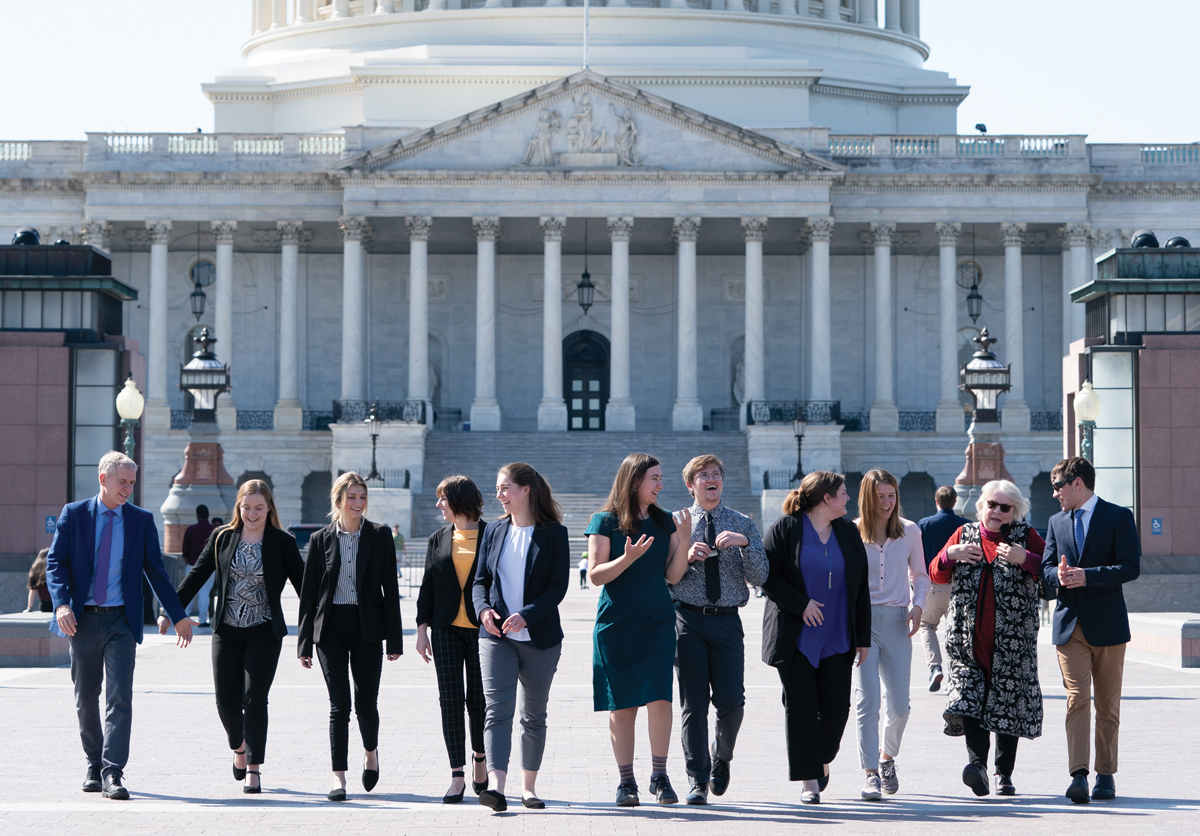Michael Snarr is a professor of political science at Wilmington College in Ohio. A regular attendee of FCNL’s Spring Lobby Weekend, Snarr has brought more than 200 students to Washington, D.C., to learn and lobby their members of Congress. He has co-edited several books, including Introducing Global Issues, and Foreign Policy in Comparative Perspective: Domestic and International Influences on State Behavior. Snarr represents Wilmington Yearly Meeting on FCNL’s General Committee.
How did you get into your current role? Why do you think it’s important to involve young adults in policy work and advocate with them?
Back when I was in college and graduate school, I had no idea I would be working with young adults on advocacy. When I arrived at Wilmington College, my father, Neil Snarr, was just beginning to work with Jim Cason and FCNL on advocacy, and I essentially inherited that role.
Involving young adults in policy work all comes down to empowerment. Teaching them how to lobby and helping them go through the process gives them the confidence they need to advocate for the rest of their lives.
What issues do you think are the most salient for young adults right now?
My more liberal students are interested in environmental issues, like climate change, and various human rights issues. My more conservative students are interested in many of these issues as well but advocate different responses. These students are also more focused on the job market and economic opportunities, which can seem overwhelming at times.
What have been your biggest takeaways or “Ahas!” from working with young people?
Students want hands-on experiences. The classroom is important, but getting off campus and engaging in activities like lobbying is very impactful.
Also, students on different ends of the political spectrum may read things differently, which is interesting.
For instance, one of my students read an FCNL blog post about violence interrupters and immediately wondered if it was about gun control … which it is not, but that is where his mind went.
What are your hopes for the future of our democracy, our country, and our world, and what role do you think young adults will play?
I hope our democracy will give more opportunities for young people to have an impact and share their voices. When they are ignored, they tend to disengage, which is not good for democracy.
What, in your opinion, might FCNL’s role be in the future with young people? How can we continue to engage them, welcome them, and grow with them?
I think FCNL has to face difficult questions in the future with respect to young people. My biggest concern is how to increase political diversity among young people involved with FCNL.
We are successful at attracting more liberal students, but I don’t think we’re nearly as good at appealing to those who are more moderate in their politics. This is a diversity issue we have not fully confronted.
Ultimately, we can bridge divides, but it requires patience and intention. I encourage students to focus on the practical importance of meeting the other person where they are.


